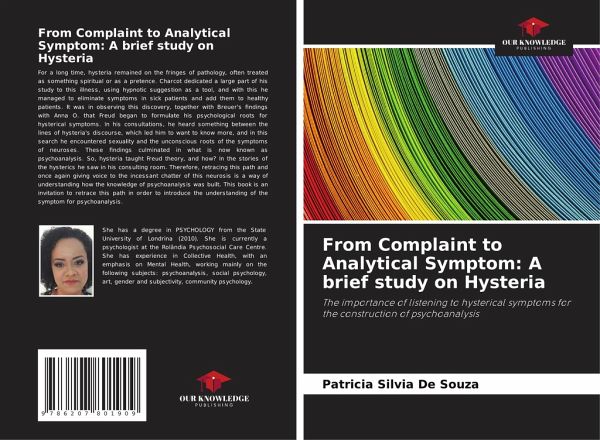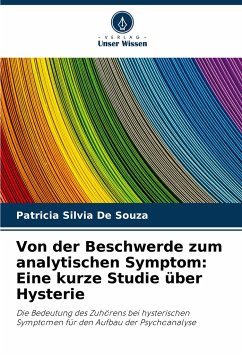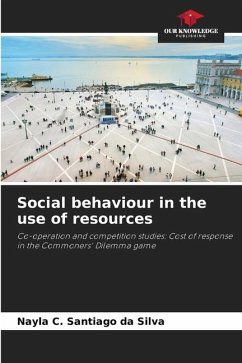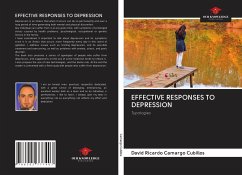
From Complaint to Analytical Symptom: A brief study on Hysteria
The importance of listening to hysterical symptoms for the construction of psychoanalysis
Versandkostenfrei!
Versandfertig in 6-10 Tagen
27,99 €
inkl. MwSt.

PAYBACK Punkte
14 °P sammeln!
For a long time, hysteria remained on the fringes of pathology, often treated as something spiritual or as a pretence. Charcot dedicated a large part of his study to this illness, using hypnotic suggestion as a tool, and with this he managed to eliminate symptoms in sick patients and add them to healthy patients. It was in observing this discovery, together with Breuer's findings with Anna O. that Freud began to formulate his psychological roots for hysterical symptoms. In his consultations, he heard something between the lines of hysteria's discourse, which led him to want to know more, and i...
For a long time, hysteria remained on the fringes of pathology, often treated as something spiritual or as a pretence. Charcot dedicated a large part of his study to this illness, using hypnotic suggestion as a tool, and with this he managed to eliminate symptoms in sick patients and add them to healthy patients. It was in observing this discovery, together with Breuer's findings with Anna O. that Freud began to formulate his psychological roots for hysterical symptoms. In his consultations, he heard something between the lines of hysteria's discourse, which led him to want to know more, and in this search he encountered sexuality and the unconscious roots of the symptoms of neuroses. These findings culminated in what is now known as psychoanalysis. So, hysteria taught Freud theory, and how? In the stories of the hysterics he saw in his consulting room. Therefore, retracing this path and once again giving voice to the incessant chatter of this neurosis is a way of understanding how the knowledge of psychoanalysis was built. This book is an invitation to retrace this path in order to introduce the understanding of the symptom for psychoanalysis.














